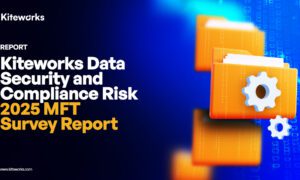What are the advantages of cyber security? This article will explore the basics of Cyber Security and how you can protect your personal computer. This will include Firewalls, passwords, social engineering, and malware. All of these topics are essential to protect your computer.
1. Malware
Malware is the term used to refer to computer viruses, Trojans, worms, and other types of software that cause damage to your computer. These programs are designed to infect and steal sensitive information from your computer.
Some malware can also cause other problems, including poor performance and program crashes without warning. If your computer is infected, you should scan it with anti-malware software. It can help you put your computer back on the road to recovery.
The best way to protect yourself from malware is to avoid visiting websites that are suspected of being malicious. This includes avoiding unfamiliar storage devices. Also, don’t click on links in emails and text messages.
It would help if you also used proxies and VPNs and constantly updated your operating system. In addition, you should regularly back up your data to an external hard drive or cloud.
2. Ransomware
Ransomware cyber security basics, include installing antivirus software and maintaining regular backups of essential data. Using these techniques and other preventive measures can minimize the impact of a ransomware attack. However, it is also important to remember that while these methods are effective, they cannot protect against all attacks.
Despite these safeguards, ransomware malware can still reach your devices. It can spread through malicious attachments in emails and infected external storage devices. A successful attack can lock up an entire database or encrypt individual files.
Regardless of your device type, basic security hygiene is the best defense against ransomware. This includes installing the latest patches and using a comprehensive anti-malware solution to identify threats. In addition to protecting against crypto-jacking, these practices can help prevent data theft.
3. Social engineering
Social engineering is a crime involving manipulating an individual into revealing their sensitive information. While the tactics vary, the end goal is usually to gain unauthorized access to the target’s data and system. This may include work accounts, credit card details, passwords, and personal documents.
The first step to preventing social engineering attacks is to be aware of them. This means keeping an eye on your email and online activities. Be wary of suspicious emails and offers. You should also avoid giving out passwords and other personal information to strangers.
Another critical step is ensuring that your company has the proper defenses in place to defend against social engineering attacks. For example, you should ensure that your systems are up-to-date with recent security patches and that you have a system to detect and respond to security incidents.
4. Firewalls
Firewalls can be a crucial component of your network’s security. They are like traffic controllers that monitor and control network traffic flow. They protect against malware, viruses, and denial-of-service attacks.
A firewall can be either hardware or software. Both types of firewalls are important in network security. Determining which type of firewall is best for your needs is essential.
The most basic type of firewall is the packet filtering type. This is meant for small networks and uses rules to accept or reject data packets. Packet filtering routers accept or reject packets based on source ports and destination addresses.
Next-generation firewalls offer increased functionality and are intended for larger organizations. They can protect your data by performing deep packet inspections.
5. Passwords that are hard to guess
Creating passwords that are hard to guess is the first line of defense against hackers. The best way to do this is to use a mixture of numbers, symbols, and characters. Using these different surfaces will increase the time it takes for someone to guess your password.
Using phrases and acronyms to create your passwords is a good idea. However, be sure to avoid using popular culture names or phrases. These are easier to guess than more obscure words.
Another good idea is to use a mnemonic device to help you remember your password. For example, the phrase “I love you” is popular. You could type in words and follow them with a punctuation mark, a digit, or a space.
6. Create a unique and original password
To protect your cyber security, you need to create a unique and original password. This is one of the best ways to avoid being hacked.
You can also use a password manager, a program that allows you to store your passwords in one place. This will ensure that you have a strong password for all of your accounts.
When creating a password, you want to choose a combination of letters, numbers, and symbols. You should make sure that you don’t use any personal information. It’s easy for cybercriminals to find this information on social media sites or your work profile.
Final Words
You should avoid using words or phrases that are popular. A hacker can guess the word you are trying to use in seconds. Instead, it would be best to consider using meaningful phrases and converting them to numbers or symbols.



































